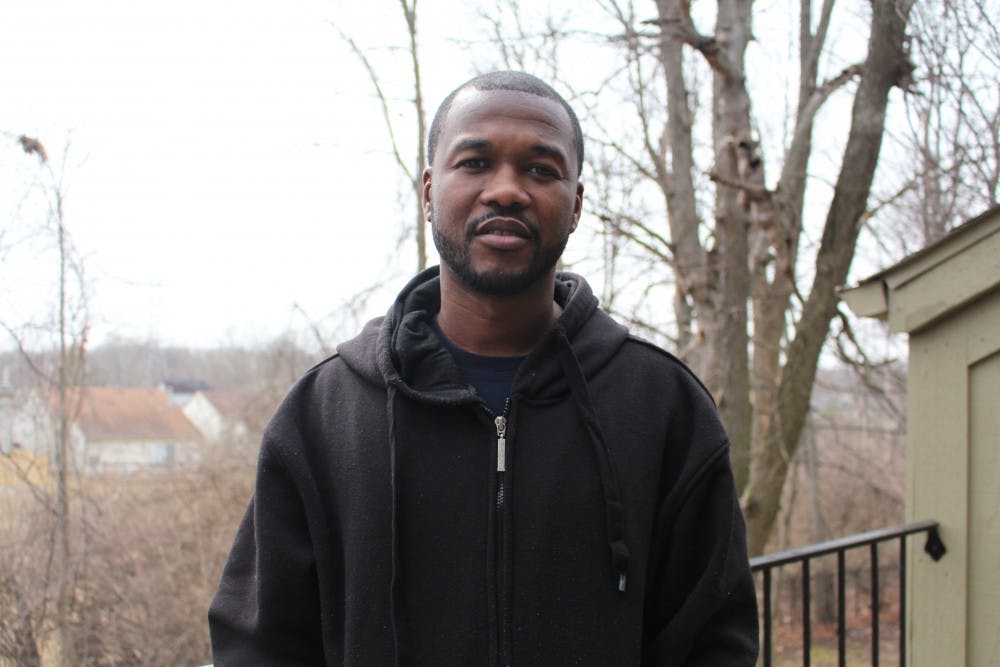INDIANAPOLIS, Ind. — Gunshots.
David Sullivan ordered his 8-year-old son David Jr. to stay on the bed and get away from the window. The 39-year-old operating engineer had heard the sound before during his time growing up on the west side of Indianapolis in Haughville.
Now the danger seemed to boom outside his front door.
After several minutes of silence, David Jr. crawled out of the bed to use the restroom across the hall, and crossed in front of the window in his bedroom that faced the street.
Pop. Pop. Pop. Pop.
Sullivan threw himself on top of his son in the hall. As both laid on the carpet, a young man lay dying of gunshot wounds a quarter mile away in a 1998 green Oldsmobile over a Twitter argument gone wrong.
Eighteen year-old Jerrold Parker died at IU Health Methodist Hospital after sustaining multiple gunshot wounds during an altercation Feb. 3, according to police.
The confrontation began after Parker’s friend Javhonn Frazier posted a tweet accusing a young man of not being able to rap.
Nineteen year-old Devin Leggett allegedly shot and killed Parker during the altercation. Leggett is now in police custody.
In the information age, social media platforms have created an environment of constant communication where the harassed can never escape and the harasser has a direct line to the victim.
Social media is both everywhere and nowhere. An intangible web of binary numbers propelled by human connection, it bears fruit to real-life consequences. Consequences as real as the death of a young man over a rap feud on Twitter.
***
“If anyone got a problem with us we can solve that right now. Hit my line,” the tweet said.
According to witness testimonies in the police report, a Twitter account named @Devin_Sav allegedly belonging to Leggett retweeted the statement after Javhonn Frazier, Parker’s friend, accused a man identified by the police as Kalen of not being able to rap.
Frazier tweeted Leggett for his phone number. Leggett responded.
“I just needed to get the number,” Frazier texted to Leggett. “I’m gonna hit you up when I get off.”
“Bet,” Leggett said.
The young men made arrangements to fight later that day, a witness said in the police report. As Frazier, Parker and his friends hung out in Frazier’s apartment, one of them received a phone call from Leggett.
“We outside,” the voice said.
In the middle of Winterberry Drive, a street lined with red apartment doors decorated with owl wreaths and fading poinsettias, the men fought.Two eyewitnesses in the police report said they saw Leggett shoot Parker.
Frazier picked Parker up and laid his bloodied body on the backseat of his friend’s green 1998 Oldsmobile. He then pounded on the window of an occupied vehicle nearby to use their cellphone to call for help. Kalen sat in the passenger seat.
The car window never rolled down.
***
In 2013, Indiana passed Act 1423, which defined the term bullying and required schools to develop and implement comprehensive anti-bullying programs. Under the law, schools must provide anti-bullying training to students by Oct. 15 every year. Staff members with direct, ongoing contact with students are also required to receive training.
The law also extends a school’s scope of surveillance by allowing staff to take action in cases of bullying that take place outside of the school if the individuals involved are students and if the situation poses a substantial threat to school safety.
Schools must also have a protocol to report, investigate and follow-up with incidents, as well submit a report detailing the recorded cases of bullying that occurred during the school year.
During the 2013-2014 academic year, schools across the state reported more than 9,000 cases of bullying to the Indiana Deptartment of Education.
The number fell to 7,100 reported cases of bullying the following academic year — nearly 650 of them involving written or electronic communication. In both reports, Pike High School — Frazier and Parker’s school — was not represented in the statistics.
According to its website, Pike High School has an anti-bullying program in place that includes video training for staff and anti-bullying clubs for students. Pike High School did not respond to requests for comment regarding Parker’s death.
Although the number of cases are declining, several loopholes in the law allow schools to function without implementing anti-bullying programs.
Act 1423 only specifically states public schools must provide anti-bullying training for its students and staff, and leaves the door open for charter and private schools to function without an anti-bullying policy.
Parents cannot seek legal action against their child’s school if it does not comply with the law. Act 1423 does not state any enforcement measures to hold schools accountable.
But according to the information in the police report, the tweets and text messages that served as a catalyst for Parker’s death didn’t fall through the cracks. The exchange simply didn’t meet the criteria.
The closest Sullivan’s son David Jr. has ever gotten to social media is talking to his friends through a headset while playing Xbox, Sullivan said. He does not have any social media accounts and said he refuses to let his son activate one.
Social media is a reflection of the end of times, a cancer on society with no cure, Sullivan said. The violence caused by the hateful words shows the younger generation’s lack of respect for life, and pours salt on open wounds.
Sullivan and his son plan to move out of their apartment at the end of the lease. Sullivan doesn’t feel safe in his home anymore.
“You’re gonna learn from that pain,” Sullivan said. “Or it’s gonna kill you.”






